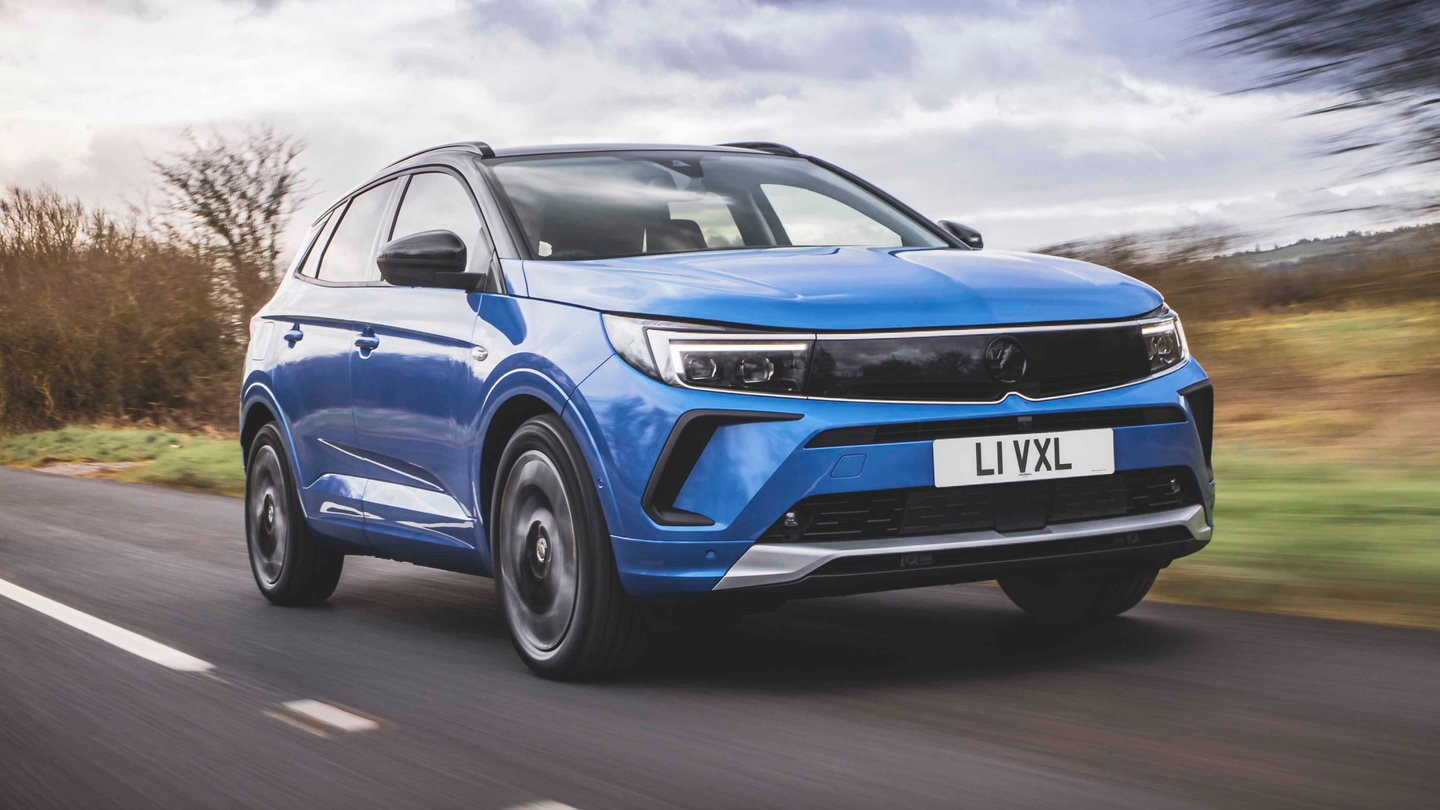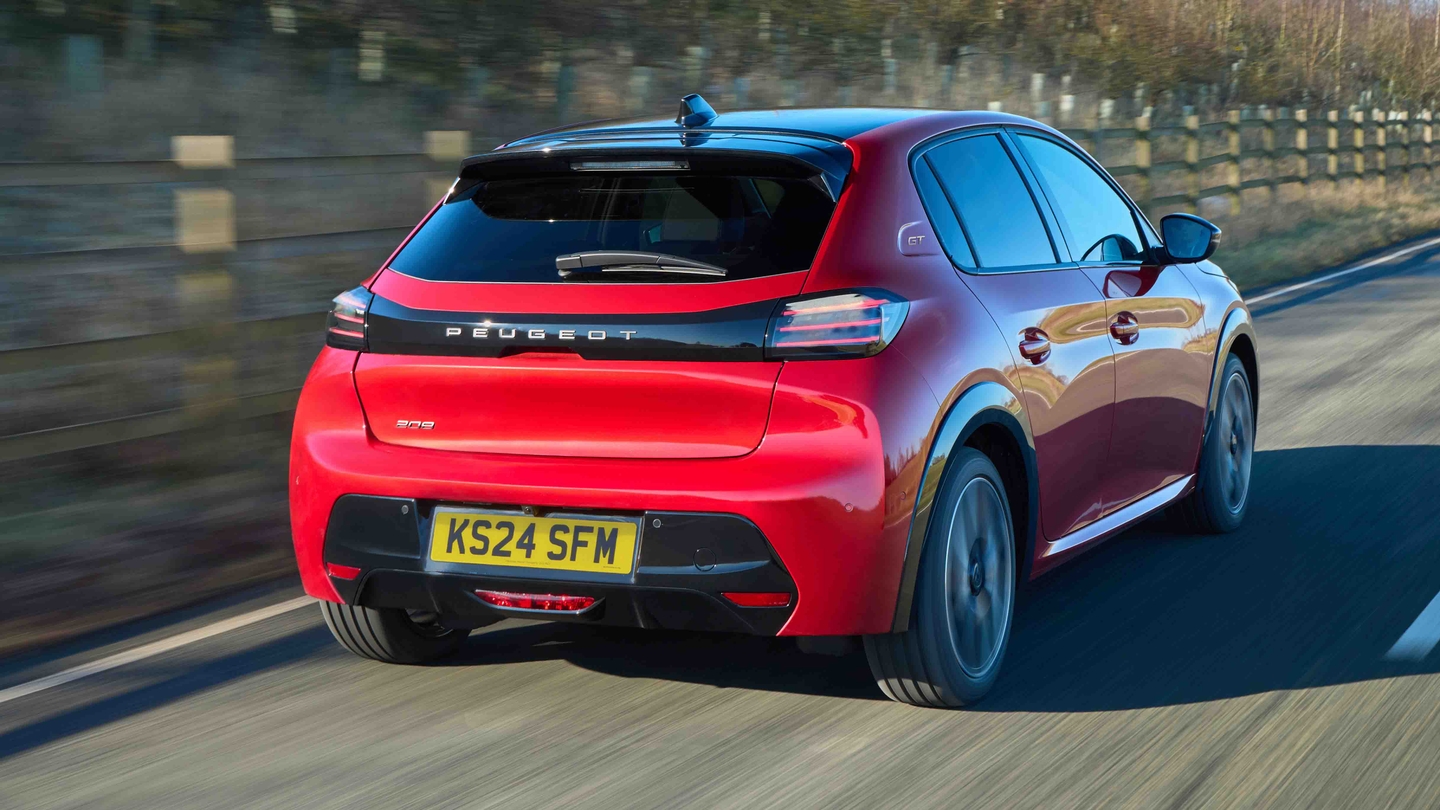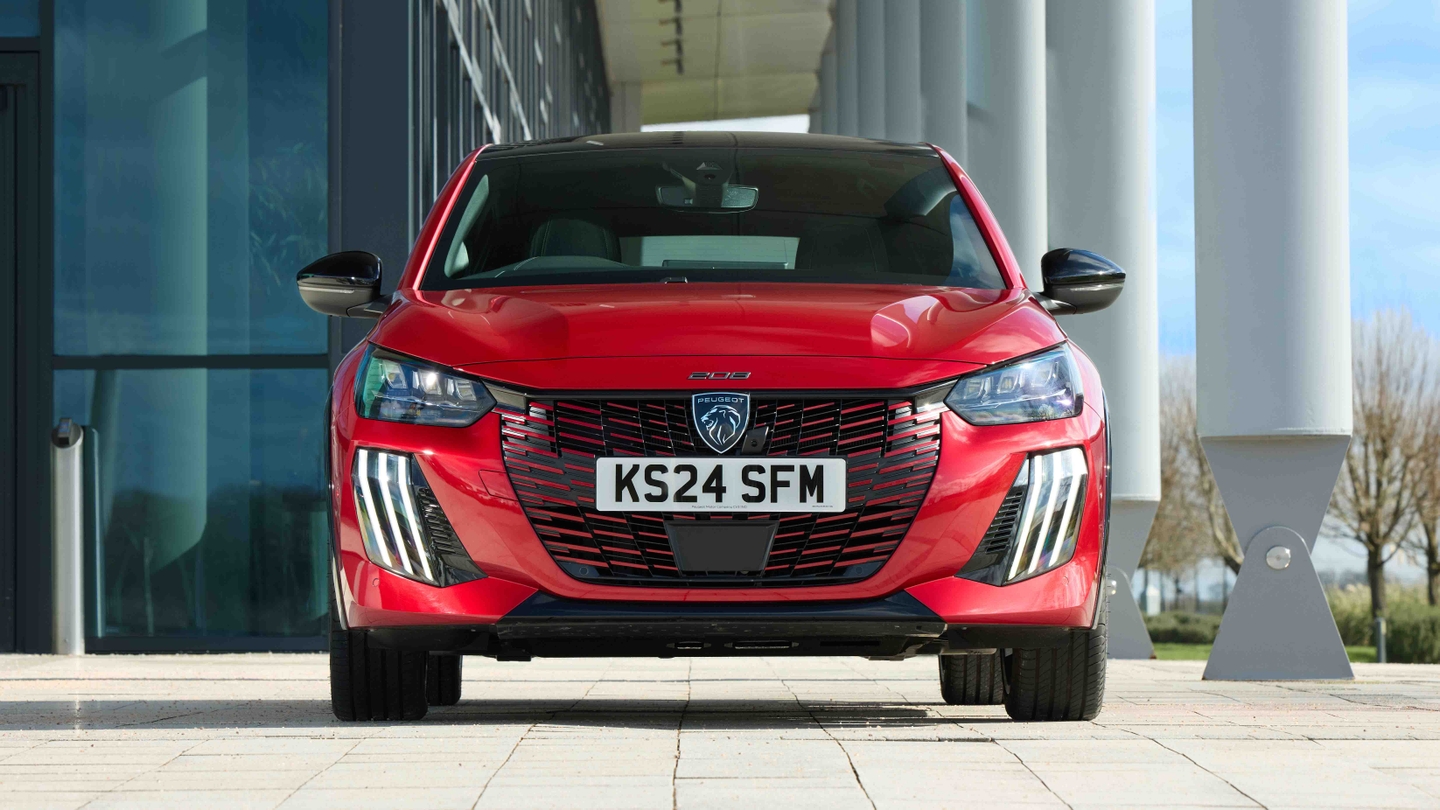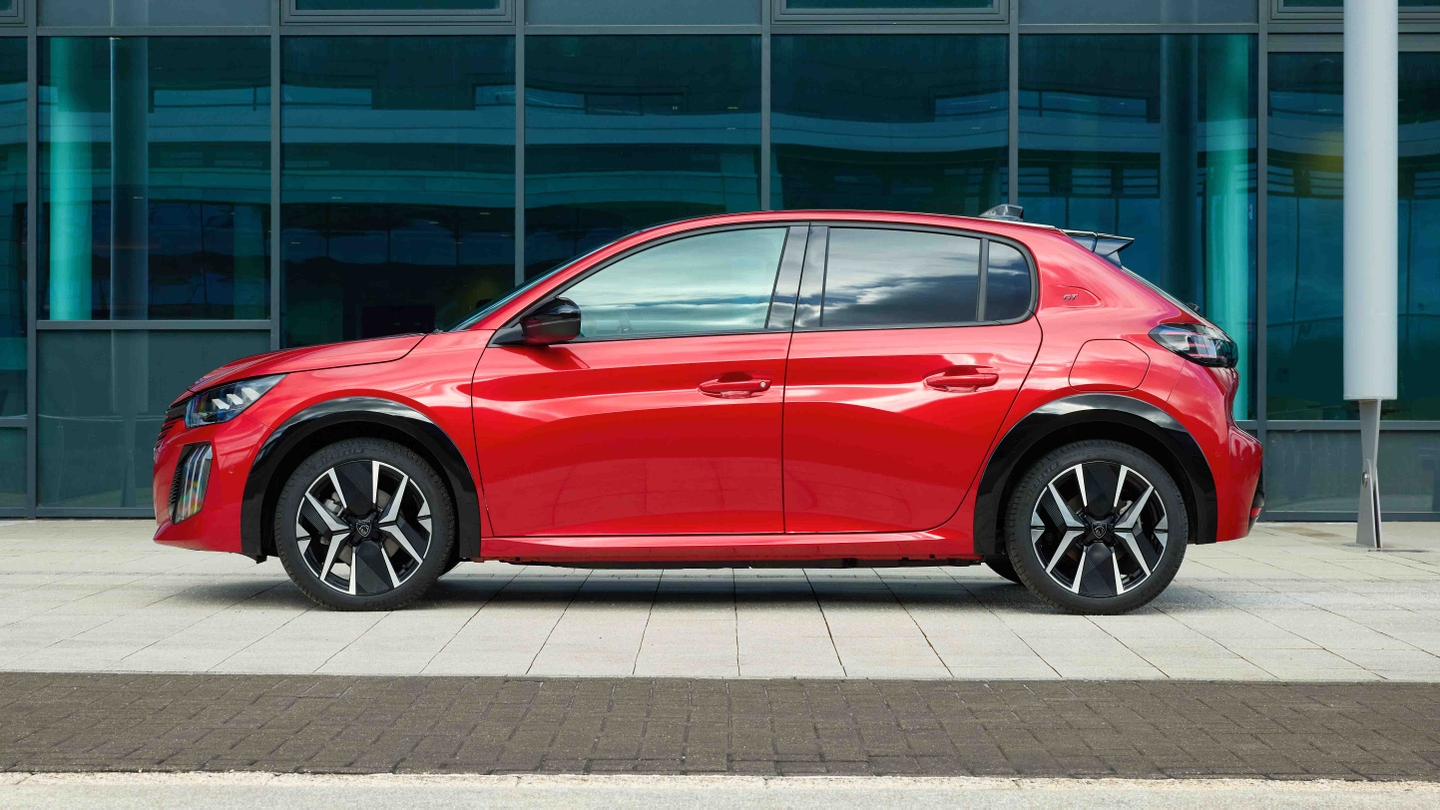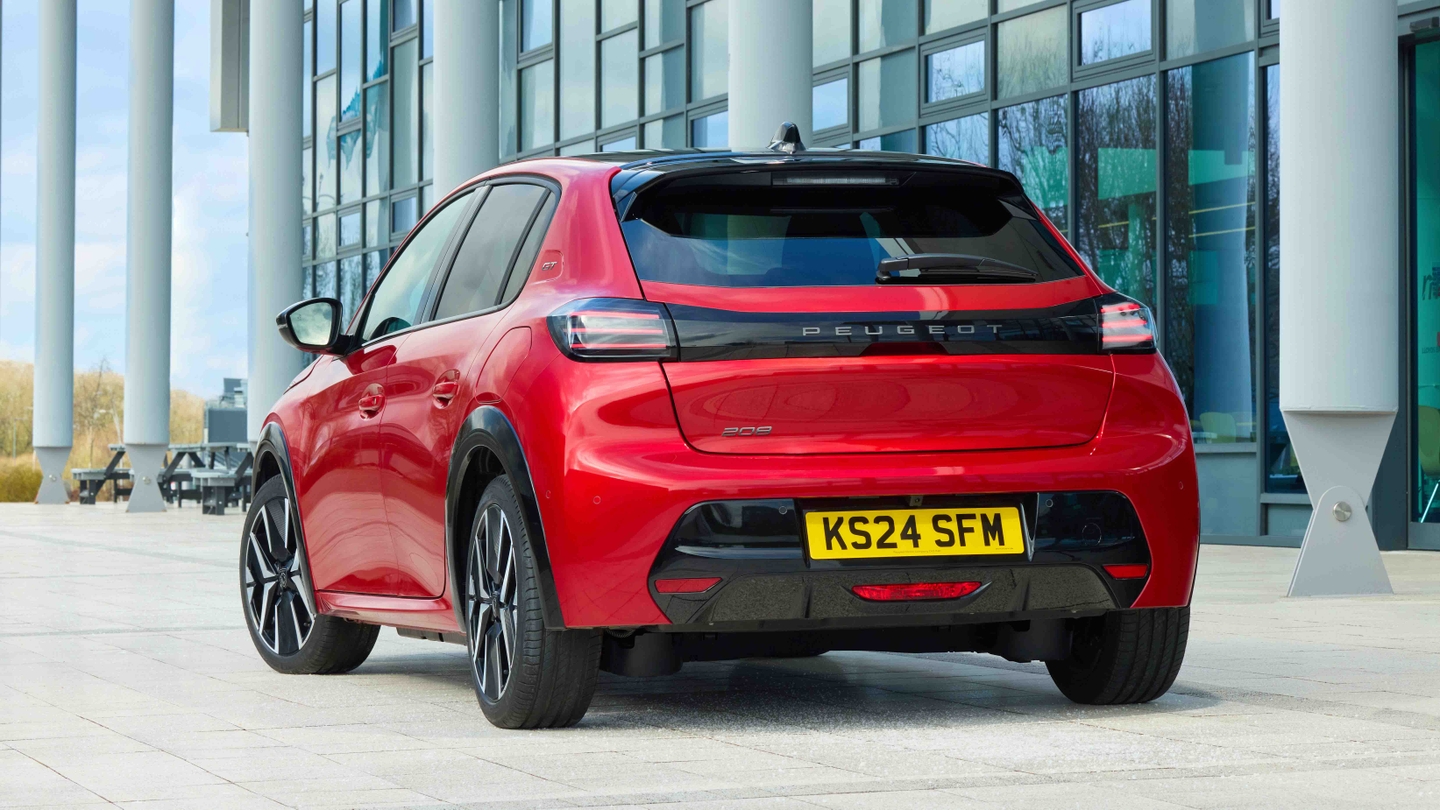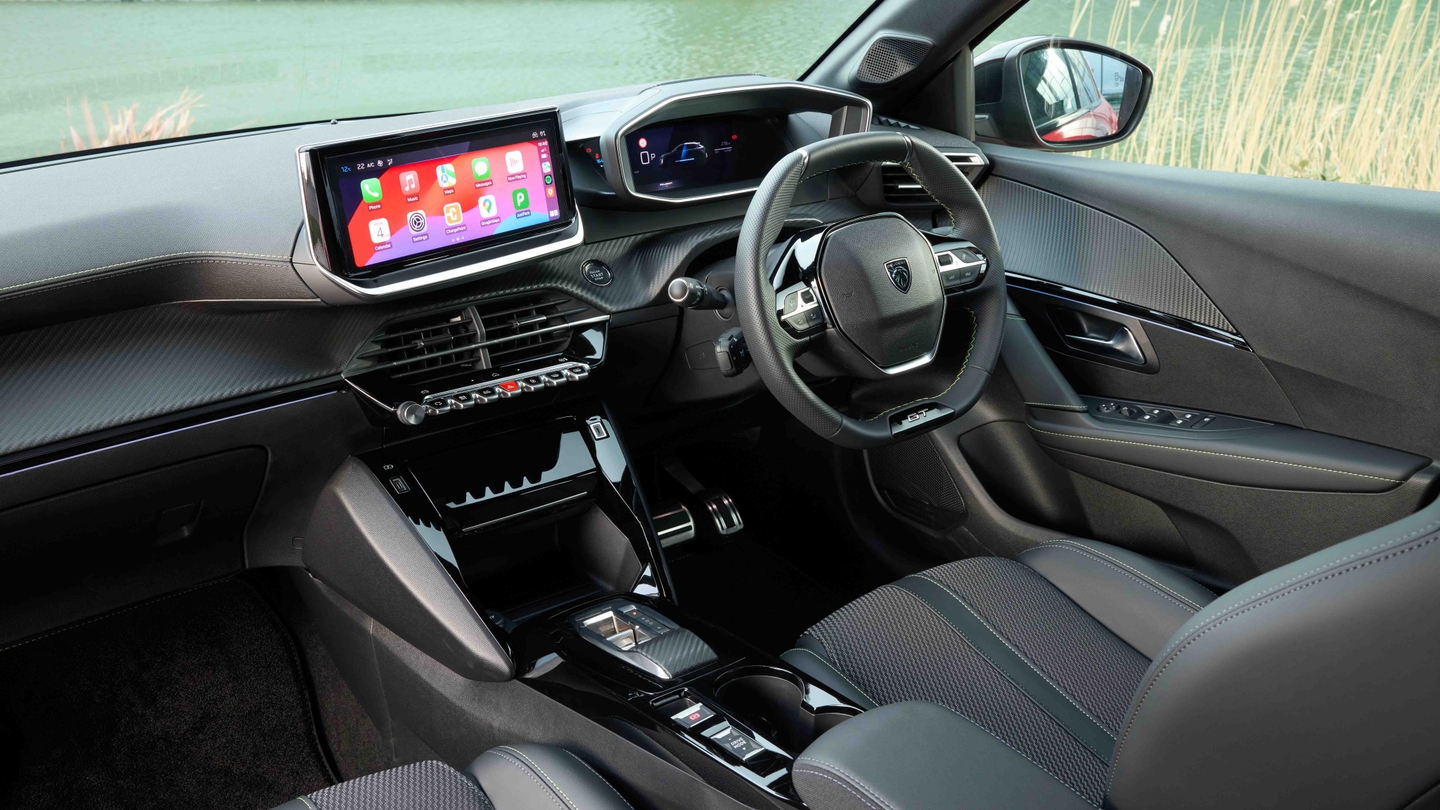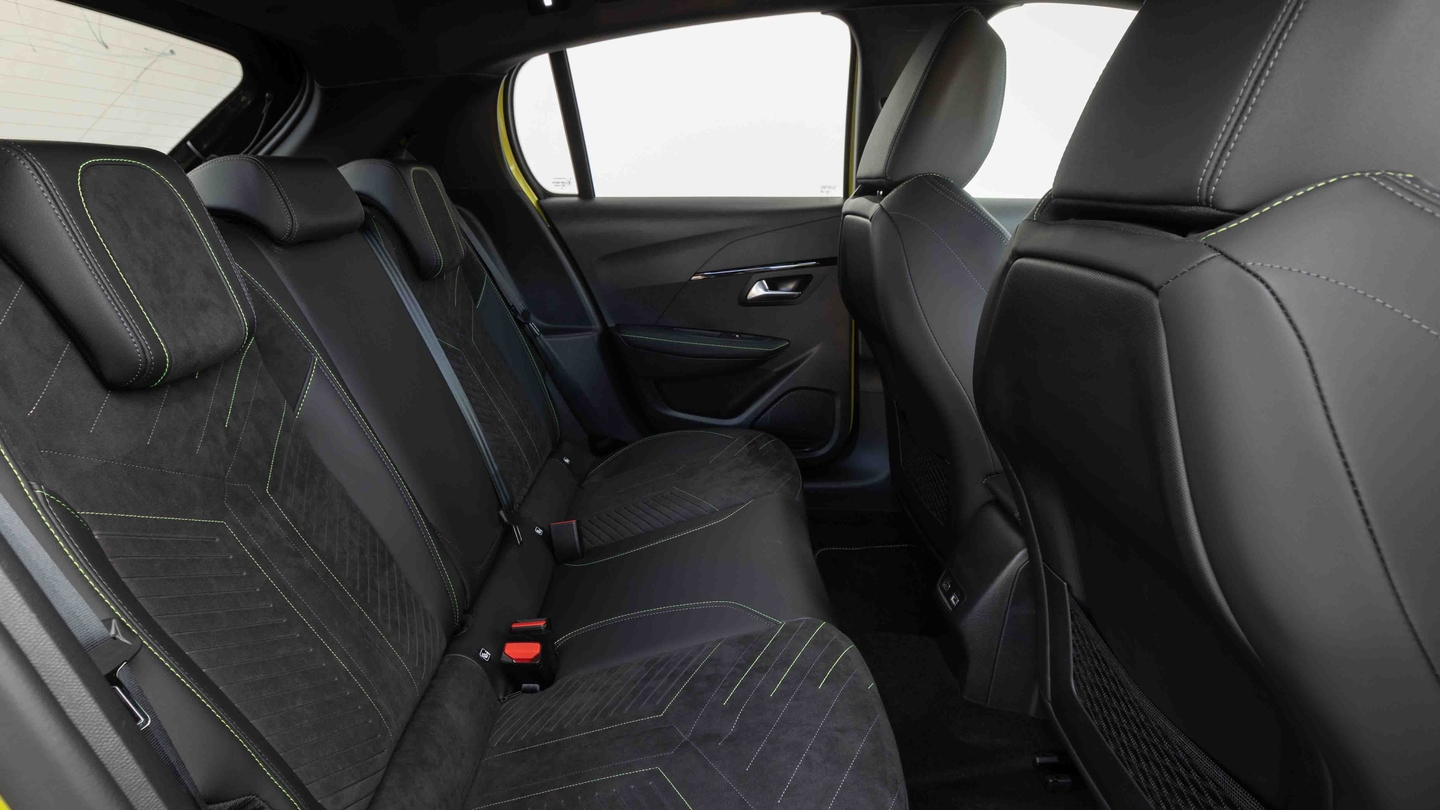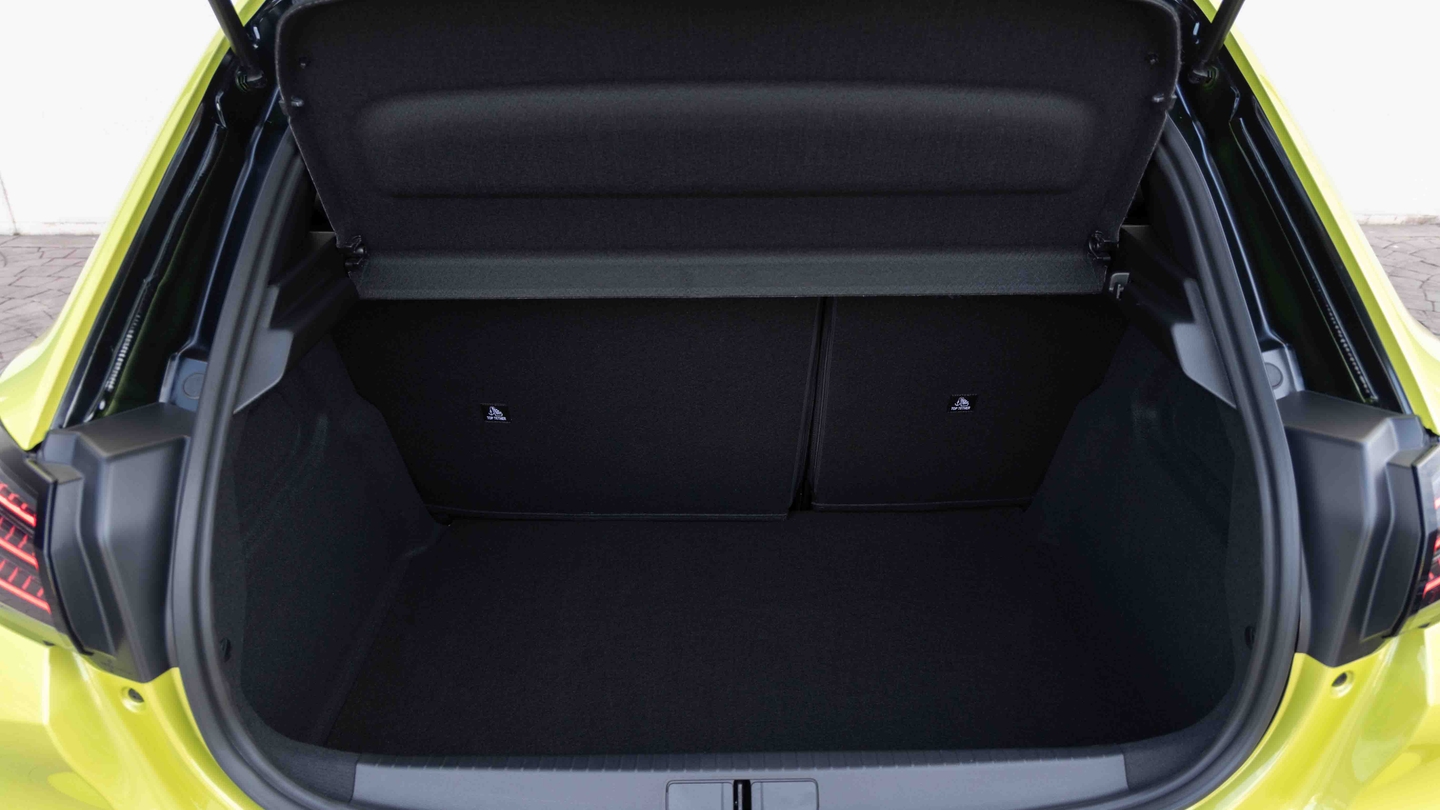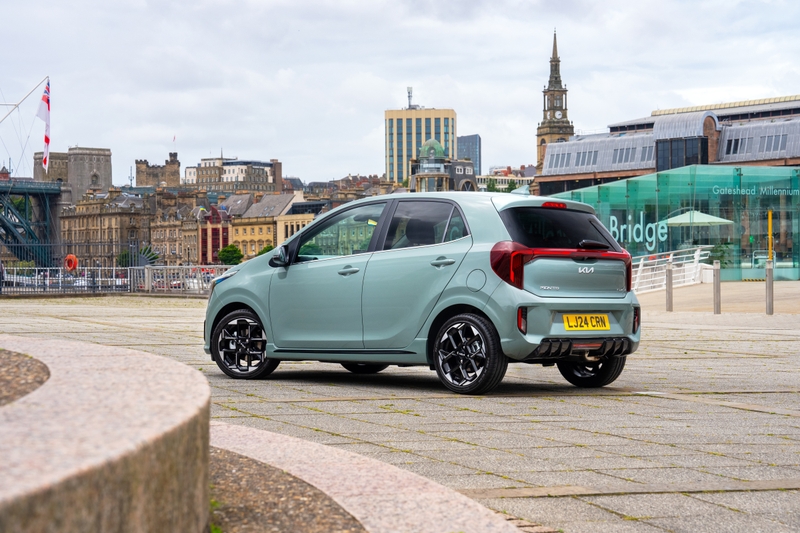
Peugeot 208 engines, driving and performance
Gallery
How does the Peugeot 208 drive?
On the road, the Peugeot 208 is fine but unremarkable. The controls aren’t set up with the razor-sharp edge you find in the sportiest rivals, nor is the suspension honed to keep the car faultlessly level around corners. Instead, you just get a nice, balanced car that’s easy to drive and inspires confidence in almost all driving scenarios.
The steering doesn’t make any effort to communicate what’s happening at the front axle, but it still feels accurate and you never find yourself sawing at the wheel to keep the car pointed straight. It rolls a little through corners – never feeling tippy or roly-poly – but enough that you can feel the weight settle from one side of the car to the other when changing direction on a faster road.
Is the Peugeot 208 comfortable?
Few small cars can truthfully claim to be comfortable because their affordable construction and short wheelbase both make that hard to achieve. Peugeot’s engineers have pulled it off, however, because the 208 is extremely well composed over bumps, absorbing most impacts the wheels experience before they ever make it to the cabin.
It’s quiet, too. Wind and tyre noise are generally well insulated, with just the odd audible thump from the suspension making itself heard in the cabin. The petrol engines can be a little rumbly when you accelerate, but the engine’s thrummy sound is relatively pleasant to our ears so isn’t too hard to live with.
What’s the best Peugeot 208 engine to get?
The answer here depends on your budget and your driving needs. If you’re looking at a first car or to share your 208 with a new driver, choose one of the 75hp non-turbo petrol models as these have the lowest insurance groupings.
For all other drivers, we’d recommend the 100hp turbo petrol. This engine is impressively punchy on the road, with lots of torque available for easy overtakes. You can upgrade to the 130hp version, but this is only available with an automatic gearbox and, for us, isn’t worth the extra purchase price if you’re happy driving a manual car.

However, if you are considering an automatic 208, it’s also worth taking a look at the new Hybrid models. Despite having a very small battery, this variant is capable of driving on electric power for around 50% of around-town trips. If you spend the majority of your driving time in crowded areas, this chain-driven 1.2-litre engine is going to be the most economical of the lot. In mixed driving you’ll see around 54mpg, which is still a useful increase on the standard 1.2-litre petrol.
We have to shout out the battery-powered e-208, however, because this is objectively our favourite engine for the 208. You get ultra-smooth power delivery and a respectable 200-mile range, plus the option to fast-charge at up to 100kW if you can find a suitable outlet. Buyers who can charge at home may find huge running-cost savings by choosing an e-208 over an engine-powered model.
Newer e-208s come with a slightly bigger battery and a more powerful electric motor, for a handy increase in range to 248 miles. A 20-80% charge at a 100kW public charger takes around 25 minutes – meaning this dinky Peugeot EV is more than capable of regular long drives.
Peugeot 208 performance
Sadly, Peugeot hasn’t graced this generation of 208 with a sporty GTi model – a shame considering this is probably the best-driving 208 it’s ever built. That said, the 100hp and 130hp turbo petrol engines give the 208 quite a bit more performance than you might expect considering their fairly modest claimed output. Both have plenty of pulling power for fast overtakes and enough torque that you don’t have to hunt around the gearbox if you hit a steep incline.
The e-208 is even nippier. It has around the same amount of power on paper as the 130hp 1.2-litre turbo petrol but the instantaneous power delivery from the electric motor makes it feel even faster, especially around town speeds. It doesn’t feel out of puff on the motorway, either, but be mindful of the throttle pedal if you want to get close to that 200-mile claimed range.




